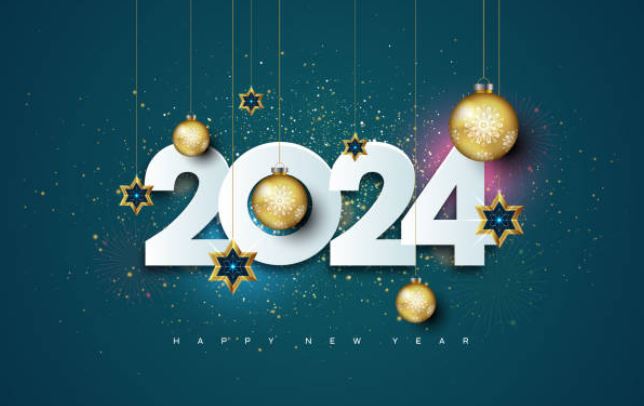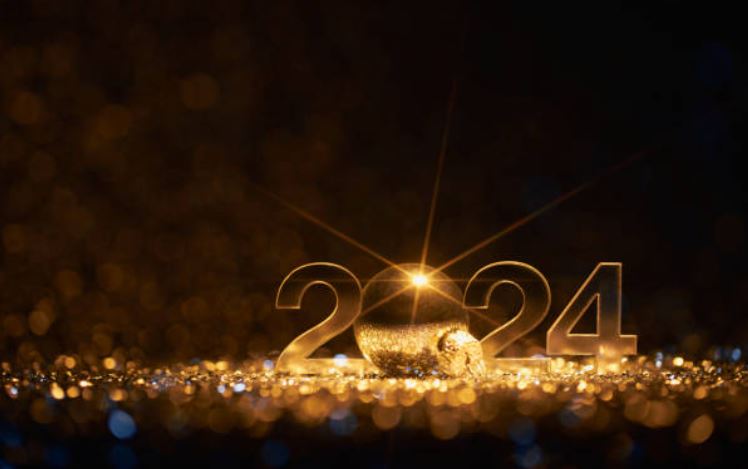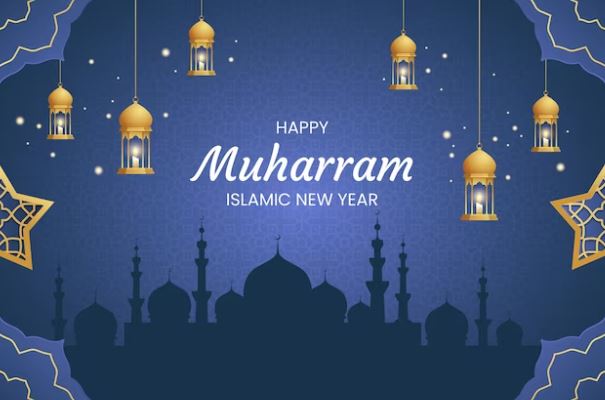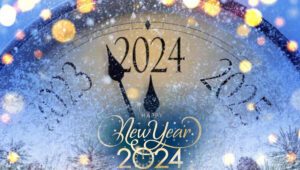Happy New Year 2024
New Year Celebrations Around the World: A Cultural Journey
Happy New Year 2024: New Year’s festivities, marking the beginning of a fresh chapter, are observed across diverse cultures globally. From ancient Mesopotamian rites to modern-day revelries, each culture adds its unique touch to the celebration. Let’s embark on a cultural journey exploring the rich tapestry of New Year traditions. January 1 marks the beginning of the next calendar year.
Significance of New Year Celebrations Worldwide
New Year celebrations hold paramount significance as societies unite to bid farewell to the old and welcome the new. It’s a time of reflection, renewal, and hope, fostering a sense of collective joy transcending geographical boundaries.
Historical Records of New Year Celebrations
Delving into historical records unveils the roots of New Year celebrations, providing insights into the evolution of customs and traditions. Mesopotamia, with its Akītu festival, claims the earliest known New Year celebration, setting the stage for a global phenomenon.
1. Mesopotamian Origins
- Akītu Festival in Babylon
The Akītu festival in Babylon, around 2000 BCE, marked the inception of the New Year. Celebrated in Mesopotamia, it symbolized the rebirth of nature, aligning with the arrival of the new moon after the vernal equinox. - New Year in Assyria
Neighboring Assyria, too, embraced the New Year with the onset of Sharad Ritu, signifying the shift towards autumn. These ancient Mesopotamian celebrations laid the foundation for subsequent cultural observances.
2. Ancient Egyptian and Phoenician Traditions
- New Year Celebration in Egypt
In ancient Egypt, New Year festivities aligned with the flooding of the Nile, a vital event influencing agricultural cycles. Pharaohs conducted elaborate rituals, emphasizing the connection between cosmic events and earthly abundance.Happy New Year 2024 - Phoenician Observances
The Phoenicians, renowned maritime traders, incorporated New Year celebrations into their cultural fabric. Their observances, influenced by lunar and seasonal cycles, reflected a harmonious blend of commerce and spirituality.
3. Greek and Roman Calendars
- Transition in Greek New Year Celebrations
As cultures evolved, the Greeks transitioned their New Year celebrations to coincide with the arrival of spring, emphasizing nature’s cyclical renewal. This shift laid the groundwork for the Roman Republic’s adoption of a new calendar. - Julian Calendar Adoption in Rome
In 45 BCE, the Julian calendar, introduced by Julius Caesar, standardized January 1 as the start of the New Year. Although it underwent adjustments over time, the Roman calendar’s influence persisted.
4. Medieval Europe
- Shift to March 25 in Christian Europe
Medieval Europe witnessed variations in New Year observances, with March 25 often considered the beginning of the year. This divergence highlighted the cultural interplay between pagan traditions and Christian influences. - Influence of William the Conqueror in England
William the Conqueror’s decree in England to commence the New Year on January 1 faced resistance initially but gradually gained acceptance. This illustrates the dynamic interplay between political decisions and cultural practices.
5. Adoption of the Gregorian Calendar
- Catholic Church’s Reform in 1582
Amid discrepancies in the Julian calendar, the Catholic Church spearheaded the Gregorian calendar reform in 1582. Pope Gregory XIII aimed to realign the calendar with astronomical events, rectifying the drifting equinoxes. - Gradual Acceptance in European Nations
The adoption of the Gregorian calendar encountered initial resistance, with some European nations hesitating to embrace the new system. However, over time, the reform gained widespread acceptance, synchronizing New Year celebrations globally.
6. New Year Celebrations in Different Cultures
- Jewish Rosh Hashanah
The Jewish New Year, Rosh Hashanah, marks a time of introspection and spiritual renewal. Celebrated in the fall, it involves symbolic customs, including the sounding of the shofar and sharing festive meals. - Islamic New Year (Muharram)
Muharram, the first month of the Islamic calendar, marks the Islamic New Year. It is observed with prayers, reflections, and communal gatherings, emphasizing the significance of the Hijra, Prophet Muhammad’s migration.Happy New Year 2024 - Chinese New Year
Chinese New Year, or Spring Festival, heralds the lunar new year with vibrant festivities. Families reunite, and traditions like dragon dances, lantern festivals, and symbolic feasts enhance the joyful atmosphere. - Thai and Tibetan New Year Festivities
In Thailand, Songkran, the traditional New Year, involves water-based festivities symbolizing purification and renewal. Tibetans celebrate Losar, a festival rich in rituals, prayers, and colorful decorations. - Japanese Tradition of New Year Celebration
In Japan, the New Year is a time of spiritual cleansing and family reunions. Visiting Shintō or Buddhist temples, partaking in traditional foods, and reflecting on the past year are integral to the Japanese New Year.
7. Symbolic Foods
- European and American Food Symbolism
In Europe and America, certain foods are considered symbolic for ensuring prosperity in the upcoming year. For instance, cabbage and greens signify financial growth, while black-eyed peas in the American South symbolize good luck. - Asian Culinary Traditions
Asia boasts a diverse array of symbolic New Year foods. From dumplings in China to rice cakes in Korea, each dish carries profound cultural meaning, emphasizing values like longevity, happiness, and familial ties.Happy New Year 2024
8. Cultural Practices and Superstitions
- Predictions and Resolutions
The advent of the New Year often prompts individuals to make predictions and resolutions for the coming year. This age-old tradition reflects a human desire for self-improvement and positive change. - Symbolic Acts on New Year’s Day
Various cultures engage in symbolic acts on New Year’s Day, aiming to ward off negativity and invite good fortune. From breaking old crockery in Denmark to jumping into icy waters in Canada, these rituals vary widely but share a common theme of renewal.
9. Public Celebrations
- Iconic Celebrations in Times Square and Trafalgar Square
Times Square in New York City and Trafalgar Square in London host iconic New Year celebrations, drawing massive crowds. The momentous ball drop in Times Square and the striking fireworks display in Trafalgar Square captivate audiences worldwide. - Unique Traditions Worldwide
Beyond the famous landmarks, diverse and unique traditions unfold worldwide. From the Tournoi des Roses parade in France to the Mummers Parade in Philadelphia, each celebration reflects the cultural richness of the respective region.
10. Religious Observances
- Religious Rituals and Visits
Many individuals incorporate religious observances into their New Year celebrations. Visiting temples, churches, or mosques, and engaging in prayerful rituals, provide a spiritual dimension to the festive occasion. - Integration of Religious Customs in Modern Celebrations
In modern times, religious customs seamlessly integrate with secular celebrations. This harmony reflects the adaptability of cultures, allowing for a collective celebration that accommodates diverse beliefs and practices.
Conclusion: Embracing Diversity in New Year Celebrations
As we traverse the diverse tapestry of New Year celebrations, one common thread emerges—the celebration of diversity. The myriad traditions, customs, and rituals underscore the richness of human culture, fostering unity amid global celebrations.

New Year Festivals: A Global Celebration
The festivals of the New Year encompass celebrations worldwide, marking the joyous beginning of a new year. These festivities, though not simultaneous, include various global celebrations that observe the commencement of the New Year on different dates due to diverse calendar systems. Examples of such calendars are the Gregorian calendar, ancient Greek lunar calendar, and the Jewish religious calendar, each highlighting New Year on distinct dates. Many New Year traditions are centered around the New Year’s Eve, typically on December 31.
Frequently Asked Questions (FAQs) on Happy New Year 2024
- Why does the New Year Start on January 1?
Both the Roman Republic calendar and the Julian calendar designated January 1 as the initiation of the New Year. The date was chosen partly in honor of the Roman deity Janus, a two-faced god representing beginnings, and the month named Janus. While efforts were made by medieval Christians to shift the significance of January 1, Pope Gregory XIII officially established January 1 as New Year’s Day in 1582 through a modified calendar. This date gradually gained acceptance across Europe and beyond, supplanting major Christian traditions.
- Why does the New Year Start on January 1?
Explore the complexities surrounding the desire of Gregory XIII to resolve issues by designating January 1 as the first day of the year.
- When is New Year’s Eve?
According to the Gregorian calendar, New Year’s Eve is celebrated on December 31. January 1 marks the beginning of the next calendar year.
- How is New Year’s Eve Celebrated?
New Year’s Eve is celebrated by gathering with friends and family. Popular rituals include serving symbolic meals representing good fortune and making resolutions for the upcoming year. As the clock strikes midnight, people may rejoice, toast with champagne, kiss loved ones, and, in the Western tradition, sing “Auld Lang Syne.”
- Why Does the Ball Drop on New Year’s Eve?
On New Year’s Eve, at 11:59 PM, a ball drops from a pole above Times Square in New York City. This tradition, dating back to 1907, originally signified the start of the new year. The practice of dropping balls to mark the passage of time has historical roots, with one notable example being the Royal Greenwich Observatory’s time ball established in 1833.

New Year’s Eve is a time for global celebration, reflecting the diversity of human cultures and the shared joy of welcoming a new year.












